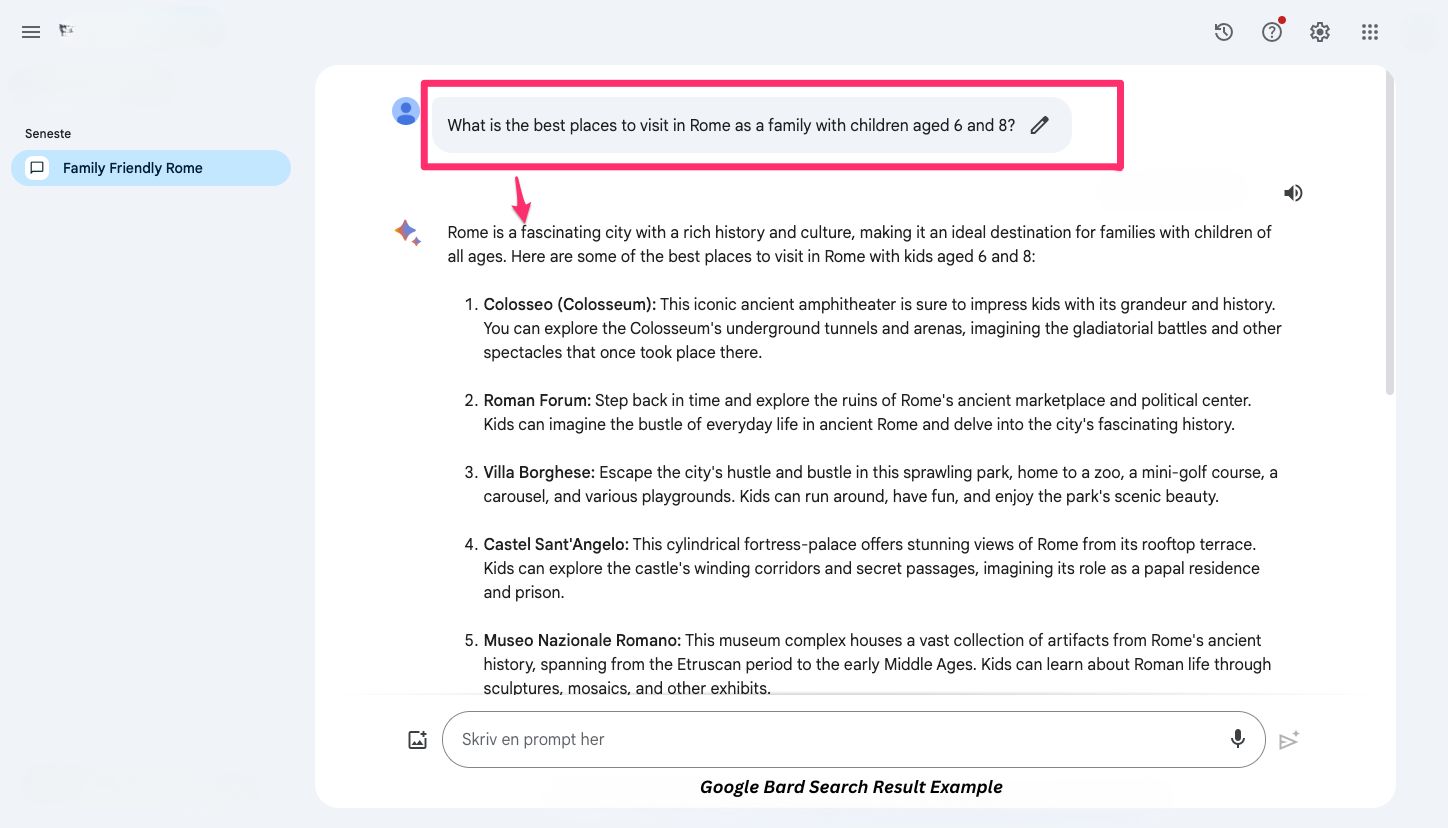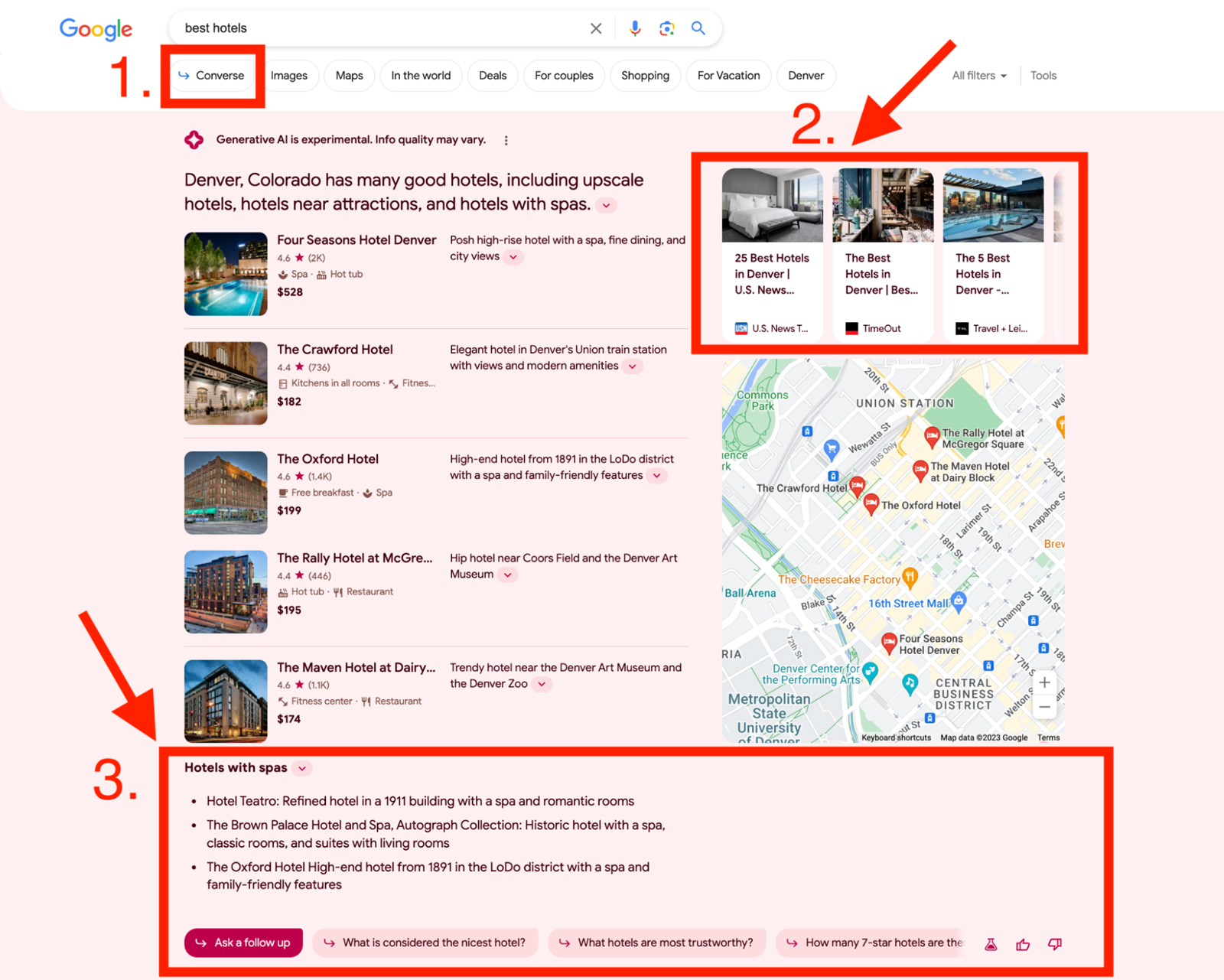Your hotel may be missing out on crucial booking revenue if you're not including keywords in your guest review replies.
However, the sheer volume of reviews can overwhelm your team, making it challenging to craft personalised responses that are both high-quality and optimised with relevant keywords.
With Google’s AI-powered search now live, optimising your replies for SEO is no longer optional—it's a critical part of your broader strategy.
If your replies aren’t optimised for AI-driven search engines like Google AI Search and Perplexity, you risk falling down the rankings—and losing potential guests.
In this post, we’ll show you how and what keywords to use to optimise your replies, drive bookings, and strengthen your reputation.
Plus, learn how AI tools can eliminate the burden of writing SEO-ready responses and automate your review response strategy without adding to your headcount.
By the end of this article, you’ll have actionable tips to improve your hotel's visibility, drive booking revenues through review responses, and boost your online reputation.
Understanding the Importance of Keywords in Guest Review Replies
Asking guests for reviews is the first step.
The second? Responding strategically.
Guest reviews play a pivotal role in your hotel's online presence.
Not only do they influence potential guests' perceptions, but your responses to these reviews can significantly impact your search engine visibility.
By strategically incorporating keywords that potential guests are searching for—such as "luxury spa", "family-friendly hotel", or "hotel near Times Square"—you align your responses with guest feedback, improving your chances of appearing in relevant search results.

The Impact of Responding to Reviews
-
TripAdvisor Insights: According to TripAdvisor, hotels that respond to more than 50 percent of their reviews increase their likelihood of receiving a booking inquiry by 24 percent.
-
Harvard Business Review (2018): A study published in the Harvard Business Review found that hotels that start responding to reviews receive 12% more reviews and see their ratings increase by an average of 0.12 stars. Higher ratings and increased review volume can improve visibility on search engines and booking platforms.
-
Google's Recommendations: Google advises businesses to respond to reviews, stating that it shows you value your customers. While not explicitly linking responses to SEO, following Google's guidelines aligns with best practices that can improve search performance.
The Evolution of Search Engines in the AI Era
AI Search
Search engines like Google are evolving rapidly with the integration of artificial intelligence.
Traditional SEO factors like content quality and backlinks remain important, but AI has introduced a more intuitive and conversational approach to search.

From SEO to GEO
-
Search Engine Optimisation (SEO): Focuses on optimising websites to rank higher in traditional search engine results through targeted keywords, quality content, and backlinks.
-
Generative Engine Optimisation (GEO): Emerges with AI-driven search engines that generate comprehensive responses by synthesizing information from multiple sources.
For hotels, this means that optimising guest review replies with relevant keywords has become more critical than ever.
Key Features of AI-Powered Search

- Converse Feature: Enables users to engage in a conversation with Google, facilitating the retrieval of desired information and retaining context from previous interactions.
- Authoritative Sources: Google's AI doesn't autonomously generate responses. It leverages high-authority and well-ranked content within its index to inform its AI generation, guiding users effectively.
- Related Information: Google suggests related search items based on your query and provides additional information on those suggestions and other related searches.
*Note: Google's Search Generative Experience (SGE) is currently in a testing phase and some features are currently not available in all countries.
Why Keywords in Reviews Are More Critical Than Ever
1. AI Understands Context
AI algorithms now comprehend the context and nuances in reviews and responses.
Using relevant keywords naturally within your replies enhances their effectiveness.
2. Enhanced Data Analysis
AI can analyse vast amounts of data to identify trends and preferences.
By including specific keywords, you tap into these trends, improving your visibility.
3. Catering to Specific Searches
Guests often use long-tail keywords like "hotels near Times Square with rooftop pool."
Incorporating such specific terms in your replies increases the likelihood of appearing in these niche search results.
Long-Term Benefits of Using Keywords in Guest Review Replies
Improved SEO Over Time
Consistently using relevant keywords helps search engines associate your hotel with those terms, gradually improving your ranking.
- Moz Local Ranking Factors (2023): Engagement and freshness of content are factors in local search rankings.
- Regularly updating your Google profile with keyword-rich responses keeps your content fresh.
- Refer to the Moz Local Search Ranking Factors for more details.
Increased Organic Traffic
Higher search rankings lead to more organic traffic from potential guests actively searching for what your hotel offers.
Boosted Booking Revenues
Enhanced visibility and targeted traffic translate to increased bookings and revenue growth over time.
- Logical Extension: While direct statistics are limited, it's logical that improving SEO through keyword optimisation in responses leads to increased visibility and, consequently, more bookings.
Optimising Review Responses for AI-Powered Search
To make the most of AI-driven search engines, consider the following strategies when crafting your guest review replies:
Use Natural Language
Ensure your replies sound conversational.
Avoid keyword stuffing; instead, integrate keywords seamlessly into your responses.
Diversify Your Keywords
Include synonyms and related terms to capture a broader range of search queries.
Focus on User Intent
Address the specific needs and concerns expressed in the reviews.
Tailoring your responses to guest intent enhances relevance.
Practical Examples of Keyword Integration
1. Maintenance-Related Keywords
When addressing reviews about maintenance or service issues, highlight your hotel's prompt and efficient response.
Keywords to use:
- "24/7 maintenance service"
- "Quick room repairs"
- "On-site maintenance team"
- "Emergency maintenance response"
- "Room maintenance staff"
Example Response:
"We’re glad to hear that our maintenance team was able to assist you quickly. Our 24/7 maintenance service ensures that guest issues are resolved promptly, so you can enjoy a stress-free stay."
2. Highlighting Location and Nearby Attractions
Emphasise your hotel's convenient location to attract travellers seeking specific attractions.
Keywords to use:
- "Hotel near [Landmark]"
- "Close to shopping and dining"
- "Near public transportation"
- "Hotel near the airport"
- "Walking distance to [Attraction]"
- "Prime city centre location"
- "Scenic views of [Landmark]"
- "Beachfront hotel"
- "Quiet neighbourhood"
Example Response:
"Thank you for your wonderful review! We’re glad you enjoyed our prime downtown [City] location. Being close to shopping, dining, and popular attractions makes it easy for our guests to explore and enjoy everything the city has to offer."
3. Showcasing Customer Service Excellence
Use positive reviews to underscore your commitment to outstanding service.
Keywords to use:
- "Professional hotel management"
- "Responsive front desk team"
- "Friendly hotel staff"
- "Guest satisfaction"
- "Customer service excellence"
- "On-site management"
- "24-hour guest support"
- "Hotel managers in [City]"
- "Hotel services"
- "Concierge services"
Example Response:
"Thank you so much for your kind words about our team. Providing excellent customer service and ensuring guest satisfaction are top priorities at [Hotel Name]. We’re happy to hear that our friendly staff made your stay memorable!"
Remember: The key is to naturally integrate these keywords based on the context of the review, satisfying both search algorithms and guest expectations.
Leveraging AI Review Response Software and Keyword Integration
Writing personalised, keyword-rich replies to guest reviews can be time-consuming, especially for busy hotels.
AI review response tools like BFN-AI can streamline this process by generating high-quality responses that reflect your hotel's voice while naturally incorporating relevant keywords.
These tools can save you time, increase efficiency, and ensure consistency in your communication.
Features to Look for in an AI Tool
-
Customisation Options
Ability to tailor responses to match your hotel's tone and style.
-
Keyword Awareness
Intelligent integration of keywords without compromising the natural flow of the response.
-
Speed and Relevance
Quick generation of replies that are relevant to each specific review.
Case Study
Learn how db Seabank Resort + Spa, a top all-inclusive resort in Malta, reduced its review response times to just minutes and seamlessly integrated SEO-optimised keywords into its replies using BFN-AI
This strategy boosted their online reputation and search visibility while maintaining high guest engagement.

Balancing AI Automation with Human Oversight
While AI tools offer significant benefits, it's essential to maintain a human touch.
Use AI to handle routine replies, but ensure human oversight for complex or sensitive issues.
This approach ensures authentic communication and allows you to address unique guest concerns effectively.
The Future of AI in Review Management
As AI technology continues to advance, its role in review management will become even more significant.
Future AI tools will offer enhanced personalisation, better context understanding, and more sophisticated keyword integration, further improving guest engagement and search rankings.
In Conclusion
In the evolving landscape of AI-powered search engines, integrating keywords into your guest review replies is essential for maintaining and improving your hotel's online visibility.
By optimising your responses, you not only enhance your search rankings but also connect more meaningfully with your guests.
Key Takeaways
-
Active Engagement Matters: Responding to reviews can lead to more booking inquiries and higher ratings.
-
Keyword Optimisation Enhances SEO: Incorporating relevant keywords in your replies improves search engine understanding and ranking.
-
Leverage AI Tools Wisely: Utilise AI to streamline responses but maintain human oversight for authenticity.
Start incorporating these strategies today to stay ahead in the competitive hospitality industry and drive increased bookings for your hotel.
By implementing these techniques, hotel managers and marketing professionals can navigate the changing digital landscape effectively, ensuring sustained growth and a strong online reputation.